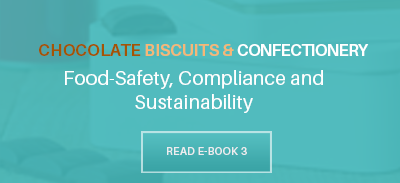What does it mean to be a socially responsible company? This can take many forms, so I think it is easier to first discuss what makes a company not socially responsible. A company that does not care for its employees, community, and shirks its social responsibilities falls into this category. This is seen in many different ways, like poor working conditions for employees or false advertising to consumers. Many types of companies can have these issues, but it is especially common to see them in companies that manufacture products. In the clothing industry a large portion of clothes are still produced in factories with poor working conditions [6]. The packaging industry falls into the category of manufacturing, which means it is crucial that these companies are aware of what socially responsibility is, its importance, and why it is beneficial. Over the past 20 years many packaging companies have been working hard towards producing their packaging in socially responsible ways.
A social responsible company is described as doing business in a way that maintains or improves both the customer and societies’ well being. This should include both preventing harm and doing good. Another way to look at a social responsible company is that it should not be solely focused on short term profits, but also on its long term beneficial impacts on society. Companies can do this through four different areas in a society: philanthropic, ethical, economic, and legal. [1,2,3]
 Companies in the packaging industry are aware of social responsibility. We call packaging that they produce, socially responsible packaging. These companies take into account the four areas of social responsibility when they design and make their products. One of the most common factors of social responsibility is environmental sustainability. Companies typically meet this by producing packaging that is made with renewable/recyclable resources, material efficient package designs, or using renewable energy sources. Companies that utilize environmental sustainability positively affect the environment and create long lasting impacts that benefit their local communities through ethical and economics means. Another aspect implemented in social responsible packaging is utilizing local resources. Companies that source their materials locally help support their communities with jobs and reduce energy requirements for production. This provides an economic benefit to communities and ethical benefits of protecting the environment and promoting community health. In terms of philanthropy some packaging companies have started to donate part of their profits towards education and community improvement.
Companies in the packaging industry are aware of social responsibility. We call packaging that they produce, socially responsible packaging. These companies take into account the four areas of social responsibility when they design and make their products. One of the most common factors of social responsibility is environmental sustainability. Companies typically meet this by producing packaging that is made with renewable/recyclable resources, material efficient package designs, or using renewable energy sources. Companies that utilize environmental sustainability positively affect the environment and create long lasting impacts that benefit their local communities through ethical and economics means. Another aspect implemented in social responsible packaging is utilizing local resources. Companies that source their materials locally help support their communities with jobs and reduce energy requirements for production. This provides an economic benefit to communities and ethical benefits of protecting the environment and promoting community health. In terms of philanthropy some packaging companies have started to donate part of their profits towards education and community improvement.
Other packaging companies donate a quantity of money to charities for each product sold using their packaging. This is especially positive as it helps develop the future generation. The last aspect of social responsibility is related to laws and government. This can be seen in companies that push and lobby for positive changes in government policy. This is often seen by companies trying to increase environmentally friendly policies.
 One example of this is paper packaging producer GWP, which was one of the first companies to become accredited with the ISO 14000 policy that is an integral part of the EU’s Environmental Management Scheme. Consumers that purchase products that are packaged by these companies support the positive legislation that these companies follow [7,8].
One example of this is paper packaging producer GWP, which was one of the first companies to become accredited with the ISO 14000 policy that is an integral part of the EU’s Environmental Management Scheme. Consumers that purchase products that are packaged by these companies support the positive legislation that these companies follow [7,8].
 One great example of a socially responsible package that provides benefits to all four areas of society is the PlantBottle that is being created by Coca Cola. This is a project by Coca Cola to replace their plastic bottles with ones made from plant based materials. It is currently more expensive to produce a Plant-Bottle than a typical plastic bottle, but Coca Cola has stated that it is the first step in reaching their goal of producing only sustainable bottles. Additionally, they hope to influence a sustainable change in the rest of the market. These bottles meet the ethical and philanthropic requirements of responsible packaging by drastically reduce the typical environmental footprint of plastic and limiting climate change. Economically these bottles allow for additional production jobs and with time may become cheaper to produce than the current bottles being used. Lastly, Coca Cola’s pioneering of this project as a hope to influence other plastic bottle producers meets the requirements for legal social responsibility. [9]
One great example of a socially responsible package that provides benefits to all four areas of society is the PlantBottle that is being created by Coca Cola. This is a project by Coca Cola to replace their plastic bottles with ones made from plant based materials. It is currently more expensive to produce a Plant-Bottle than a typical plastic bottle, but Coca Cola has stated that it is the first step in reaching their goal of producing only sustainable bottles. Additionally, they hope to influence a sustainable change in the rest of the market. These bottles meet the ethical and philanthropic requirements of responsible packaging by drastically reduce the typical environmental footprint of plastic and limiting climate change. Economically these bottles allow for additional production jobs and with time may become cheaper to produce than the current bottles being used. Lastly, Coca Cola’s pioneering of this project as a hope to influence other plastic bottle producers meets the requirements for legal social responsibility. [9]
Beyond the packaging industry many other companies now put social responsibility as a priority and wear it as a badge of pride. Companies like Patagonia put emphasis on setting standards and monitoring working conditions in their factories. Ben and Jerry’s ice cream puts 7.5% of their yearly profits towards philanthropy. The Walt Disney Company encourages employees to donate time to local community organizations and has accrued 2.9 million volunteer hours since 2012. Apple now produces 99% of its packaging using recycled paper. These companies are all massive, successful companies that lead their industries [4,5]. They continue to prosper, even though time and money is used to help their employees and community. The products that they produce can be seen as socially responsible.
Corporate social responsibility is crucial for sustainable development in the future. The increasing world population and strain on the environment demand that companies become more involved in their local communities and environments. The packaging industry is very large and plays an important role on the world stage. By companies producing social responsible packaging they send the message that they believe in a long, sustainable future for generations to come.
References
[1] “Do Consumers Expect Companies to be Socially Responsible? The Impact of Corporate Social Responsibility on Buying Behavior (2005)”, by Lois Mohr and Deborah Webber.
[2] "Social Responsibility (2019)", by Akhilesh Ganti.
[3] "Corporate Social Responsibility (CSR) (2019)", by James Chen.
[4] "About Desjardins"(retrieved April 2019), by Desjardins.
[5] "Top 20 Corporate Social Responsibility Initiatives for 2017 (2017)", Nupur Vilas.
[6] "10 Companies That Still Use Child Labour (2019)", by Siôn Phillpott.
[7] “Ethics and Altruism: What Constitutes Socially Responsible Design? (2010)”, by Rachel Cooper.
[8] "Environmentally Friendly Packaging" (retrieved April 2019), by GWP Group.
[9] "Coca-Cola Company introduces bioplastic bottle (2009)", by Smart Packaging.






